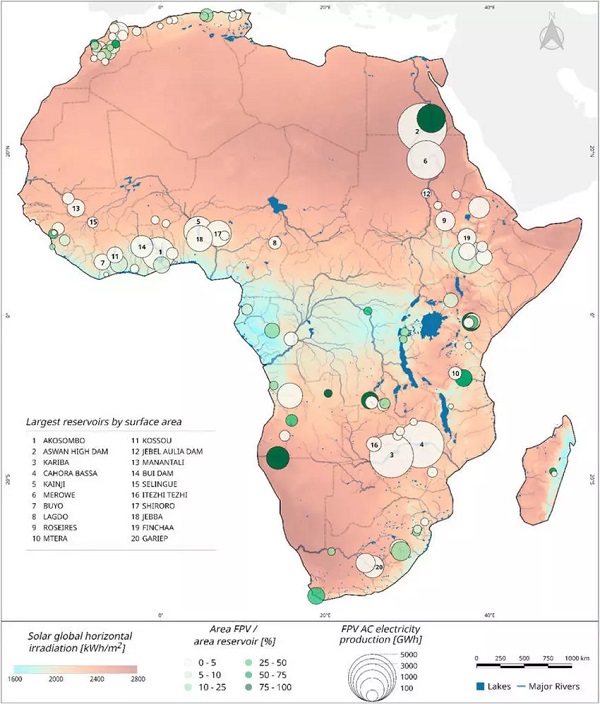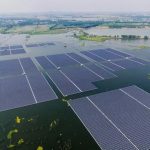Costs and challenges
Experts tell Carbon Brief that while the new paper paints an interesting picture, there are issues with floating solar in Africa.
“The technology is excellent, but rather expensive,” says Dr Mmantsae Moche Diale, a solar power researcher at the University of Pretoria.
The study notes evidence from the EU that floating solar power can cost around 20-25% more than the conventional variety.
However, the authors tell Carbon Brief that, with electricity grid infrastructure already in place at hydropower plants, the saving on grid connection costs can make floating solar “more economically viable”.
Chase downplays the additional costs, telling Carbon Brief that “it’s a bit more expensive than ground mount, but not much”, adding:
“Solar’s got so cheap that these days it’s more a ‘why not?’ than ‘why do this’”
Nevertheless, Adow says that to make the scenarios laid out in this paper a reality there will need to be targeted financial support for African governments from richer countries:
“This is why developing nations talk about the importance of ‘technology transfer‘ at the UN climate summits…It must be top of the agenda when countries meet this year at COP26 in Glasgow.”
“Africa is caught between both a climate crisis and widespread energy poverty. Its leaders need to think creatively and be supported,” he adds.
The authors of the new study note that, with floating solar still a relatively new technology, there remain many unknowns, such as the impacts on water quality and technical challenges including the impact of bird fouling and corrosion.
Gyamfi says these issues will vary considerably between countries and notes that more research will be needed to determine how best to scale up floating solar in the region.
The authors say the nations that stand to benefit most from floating solar are northern African countries, as well as South Africa, owing to their relatively low hydropower capacity.
Virtually all of South Africa’s electricity is currently provided by coal, while nations such as Algeria and Libya rely heavily on natural gas.


